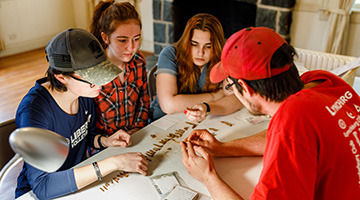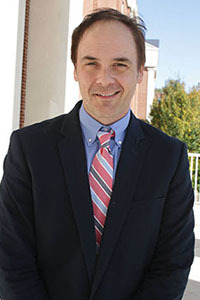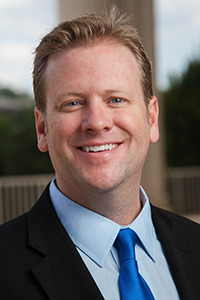History
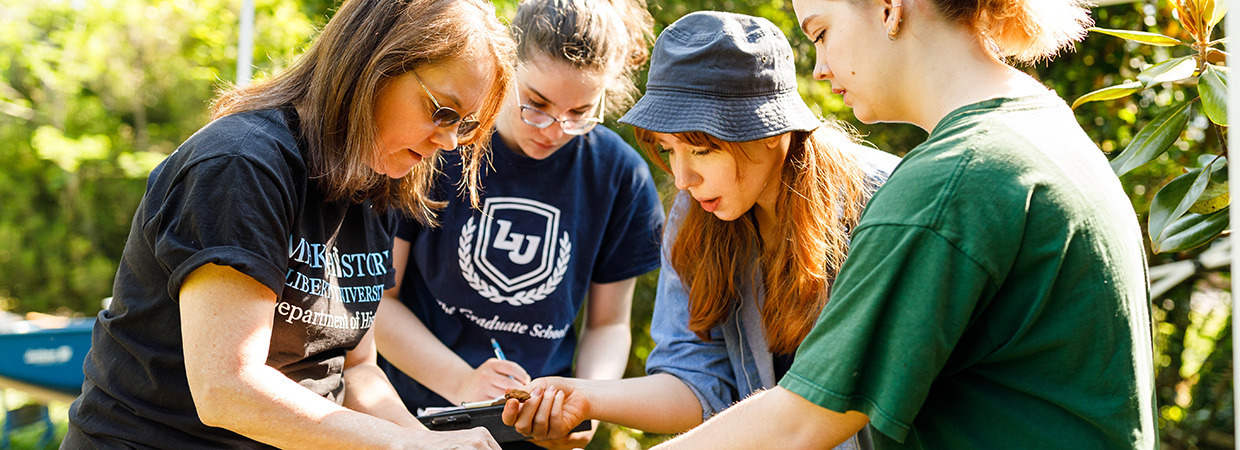
Get Your History Degree From a Christian University
Prepare for a successful career while earning your bachelor’s, master’s, doctoral, associate, or minor from Liberty University’s Department of History. With our history, social sciences, and military studies degree programs, your knowledge of these fields will be enriched as you explore exciting career options.
Courses are taught from a Christian worldview by experienced professors who share your passion for history and are grounded in their faith. Interested in a career in politics, education, or communications? A degree from our Department of History will get you ready for these career opportunities and more.
History Featured Areas of Study
View all History Degrees
- Earn a bachelor’s and master’s degree with our History dual degrees
- Enhance your degree with a History minor
- View certificate programs offered by the History department
- For advising, contact history@liberty.edu
Featured History Faculty
Student Opportunities
Public History Projects
- Chaplains Museum
Open Monday through Friday 12:00 p.m.-4:30 p.m. and Saturday 10:00 a.m.-2:00 p.m. on the terrace level of the JF Library. Summer hours vary.
- New London Projects
The New London projects give students hands-on opportunities in archaeology, historical architecture, historical interpretation, and much more.
- 250th Commemorative Conference
In honor of the 250th anniversary of the founding of the United States, the Department of History invites scholars, students, and researchers to participate in our commemorative conference, America’s Founding: Legacy and Influence. Join us as we reflect on the story of a nation and the faith, courage, and convictions that continue to shape it. Liberty University is proud to be a Commemorative Partner of VA250—Virginia’s American Revolution 250 Commission.
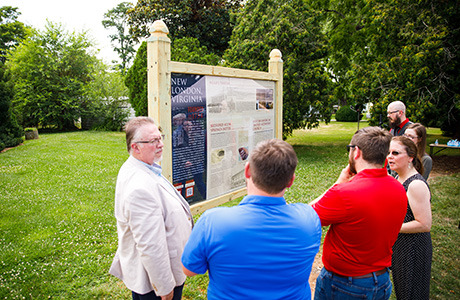

Start Your Journey as a Student at Liberty
What Our Alumni Say:
Fill out our Alumni Survey
Celebrate Local History with Liberty University Alum Wyatt Golden!
We’re excited to spotlight Wyatt Golden, a talented historian and Liberty University graduate, as he presents his work on The Colonel Lynch Project for the Campbell County Historical Society!
Sunday, January 25
2:30 p.m.
Historic Campbell County Courthouse - Rustburg, VA
The Colonel Lynch Project is a compelling historical work that explores the life and legacy of Colonel Charles Lynch, of “Green Level,” now “Avoca,” who served in the Bedford Co. Militia, as a Burgess of Bedford Co., as a member of Bedford Co. Committee of Safety, and as a Superintendent of the lead mines in SW Va.
This project brings to life the complex journey of an influential Patriot whose actions helped define the early fight for American independence.
This program is a must see for anyone who loves local and national history.
https://www.avocamuseum.org/the-colonel-lynch-project
campbell.va.us
Jan 21

Welcome back, students and faculty!
As we begin the Spring 2026 semester, the start of classes coincides with a day of national reflection. Monday, January 19, 2026, marks Martin Luther King Jr. Day, a federal holiday honoring the life, leadership, and legacy of Dr. Martin Luther King Jr.
Dr. King is best remembered as the leading voice of the modern Civil Rights Movement, but his influence extends far beyond the 1960s. His work reshaped American law, political activism, and public conscience.
Leadership in the Civil Rights Movement (1950s-1960s):
As a central figure in nonviolent protest, Dr. King helped mobilize mass movements such as the Montgomery Bus Boycott and the Birmingham Campaign, demonstrating the power of organized, peaceful resistance to unjust laws.
King’s activism and national leadership played a pivotal role in shaping public opinion and political will behind the passage of the Civil Rights Act of 1964 and the Voting Rights Act of 1965.
Today, Dr. King’s legacy challenges us not only to remember history, but to engage it thoughtfully. As the semester begins, we encourage our students to take time to reflect on how historical movements, ideas, and individuals continue to shape the world we study, and the world we are part of.
#MLKDay #MakeHistoryLU #MartinLutherKingJrDay #AmericanHistory #historymatters
Jan 19

The History Department is hiring student workers for the upcoming spring semester! Applicants must be eligible for Federal Work-Study, and History majors are especially encouraged to apply. To submit an application, scan the QR code or visit this website: https://liberty.wd5.myworkdayjobs.com/en-US/lu_job_board_student/job/History-Dept-Work-Study_R0009152.
Dec 4

Contact
(434) 592-4366
history@liberty.edu
DeMoss Hall 4334
